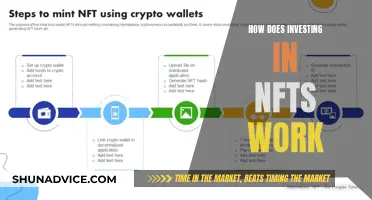
An investment buyer is an individual or company that buys residential properties as part of a business or investment strategy. They are not looking for a place to live, but rather to make a profit, either through rental income or the future resale of the property. Investment buyers can be individual investors or institutional investors. Individual investors are usually singular people or small partnerships that purchase property to rent out or 'flip'—that is, renovate and sell for a higher price. Institutional investors, on the other hand, are large funds or companies made up of many individual investors.
| Characteristics | Values |
|---|---|
| Definition | A person or company that buys properties as part of a business or investment strategy |
| Buyer Type | Institutional investors or individual investors |
| Investment Type | Buy-and-hold, wholesale, house-flip, buy/flip/hold |
| Purchase Condition | As-is |
| Payment Method | All-cash |
| Buyer's Emotional Connection | None |
| Buyer's Intent | To make money |
What You'll Learn

Investment buyers are people or companies that want to make money from their purchase
There are two main types of investment buyers: institutional investors and individual investors. Institutional investors are large funds or companies made up of many individual investors. These companies pool money from multiple investors and use it to purchase properties. On the other hand, individual investors are singular people or small partnerships that buy properties to make a profit.
Individual investors typically employ one of four key strategies: buy-and-hold, wholesale, house-flip, or buy/flip/hold. In a buy-and-hold strategy, investors purchase a property to rent it out for side income. They use metrics like cap rate to determine if the investment makes financial sense. Wholesale investors buy properties well below market value and quickly resell them to other investors for a higher price. House-flippers, as the name suggests, buy properties, renovate them, and then sell at a higher price. Lastly, the buy/flip/hold strategy is a hybrid approach where investors renovate and then rent out the property at a premium.
Investment buyers offer several advantages to sellers. Firstly, they usually pay in cash, which means a quicker closing process and no concerns about the buyer's financing falling through. Secondly, investment buyers often purchase properties "as-is," so sellers don't need to worry about making repairs or renovations before the sale. Additionally, investment buyers are more likely to be flexible with the closing date and may even rent the property back to the seller in a sale-leaseback transaction.
However, there are also potential drawbacks to selling to investment buyers. One concern is that investment buyers are not legally required to disclose who is purchasing the property or their specific plans for it. This lack of transparency could lead to unexpected changes in the neighbourhood or undesirable outcomes for the previous owner. Another downside is that investment buyers typically aim to purchase properties below market value, which may result in a lower selling price. Lastly, sellers need to be cautious about potential scams involving fake cash offers or fraudulent investors.
Policy Levers to Spur Investment Spending: A Comprehensive Overview
You may want to see also

They buy property to rent out or sell at a higher price
An investment buyer is someone who purchases a property, not to live in it, but to make money from it. There are two types of investment buyers: institutional investors and individual investors.
Individual investors are singular people or small partnerships that purchase property to make money off of it. They are either professional landlords who rent out the homes or they make major upgrades and then sell the house for a higher price than they bought it for. This process is called "flipping".
There are several benefits to selling your home to an individual investor. Firstly, they buy the property as-is, so you don't need to worry about renovations or updates. Secondly, most investors pay for properties in cash, so there is no uncertainty that comes with a buyer applying for a mortgage. Thirdly, investors usually offer a quicker closing process, which can be beneficial if you need to sell quickly. Finally, investors may be more flexible with the closing date and what is left in the house.
However, there are also some potential downsides to selling to an individual investor. You may not always know who is buying your property, and it could be a landlord with questionable renting practices or a developer who wants to tear down your house. Investors will also usually try to buy properties below market value and may not offer you the true market value of your home. Additionally, there is a risk of scams with all-cash offers, as anyone can pose as an investor without needing any credentials or licensing.
If you're considering selling to an individual investor, it's important to do your research and ask for proof of funds. You should also be aware of the potential tax implications, as selling an investment property may result in capital gains taxes.
Finding the Right CPA Partners: A Guide for Investment Advisors
You may want to see also

Investment buyers don't plan to live in the property
An investment buyer is an individual or a company that buys properties as part of a business or investment strategy. Investment buyers do not plan to live in the property and instead see it as a vehicle to make money.
There are two types of investment buyers: institutional investors and individual investors. Institutional investors are large funds or companies made up of many individual investors. These individual investors give the larger institution or company money that the company then invests. Individual investors are singular people or small partnerships that purchase property to make money off of it.
Investment buyers are looking to purchase properties below market value or at a bargain. They are not interested in the emotional connection to the space that a traditional buyer might be looking for. Instead, they are focused on the potential return on investment, either through rental income, the future resale of the property, or both.
When selling to an investment buyer, the process is typically faster and less complicated than selling to a traditional buyer. Investment buyers usually pay in cash, which means there is no need to wait for financing or an appraisal. The closing date is also more flexible, and there is no need to worry about making repairs or improvements to the property before the sale, as investment buyers typically purchase properties "as-is".
However, it is important to note that selling to an investment buyer may not always result in the highest selling price. Investment buyers are looking to make a profit, so they will factor the cost of any needed repairs into their offer. Additionally, there is a lack of emotional connection to the property, which can sometimes lead traditional buyers to offer more for a house they love.
Will Rogers' Timeless Investing Wisdom
You may want to see also

They buy property as-is and all-cash
An investment buyer is an individual or business entity that purchases assets, such as real estate, stocks, or bonds, with the primary goal of generating profit through capital appreciation, rental income, or other financial returns. These buyers are often driven by financial motives rather than emotional or personal factors when making their investment decisions. Here is some more information about one of the key aspects of investment buyers in the property market:
Investment buyers, particularly those focused on the real estate market, often seek out properties that they can acquire "as-is." This means they are willing to purchase a property in its current state without requiring extensive repairs, renovations, or improvements. This approach is attractive to sellers who may not have the time, resources, or inclination to fix up their property before putting it on the market. It also speeds up the selling process, as there is no need to wait for repairs to be completed, and it eliminates the potential for unexpected costs associated with repairs.
All-cash offers from investment buyers are highly desirable to sellers because they eliminate the potential for financing fall-throughs, which can occur when a traditional buyer relies on a mortgage loan to purchase the property. With an all-cash offer, the transaction is more likely to close quickly and smoothly, reducing the uncertainty and stress often associated with property sales. This is especially beneficial for sellers who are in a hurry to sell, such as those facing foreclosure, relocating for work, or dealing with other time-sensitive situations.
Investment buyers who make all-cash offers also benefit from increased negotiating power. Sellers often view all-cash offers as more attractive and secure, which can lead to a faster acceptance of the offer and potentially a lower purchase price. This strategy is particularly effective in competitive markets where multiple offers are common, as an all-cash offer can stand out and increase the likelihood of being accepted.
It's important to note that investment buyers who purchase property as-is and all-cash are typically experienced investors with access to significant financial resources. They may be individuals with substantial savings or businesses with established lines of credit. This enables them to act quickly and confidently when the right investment opportunity arises. Their ability to provide certainty and speed up the selling process is a significant advantage for sellers, especially those facing financial difficulties or time constraints.
For homeowners considering selling their property, investment buyers present a viable and attractive option. The convenience, speed, and certainty that come with selling to an investment buyer who purchases property as-is and all-cash can be invaluable, especially in situations where a traditional sale might be more challenging or time-consuming. Understanding the benefits and motivations of investment buyers can help sellers make informed decisions and achieve their property sale goals more efficiently.
Baseball Cards: Invest Wisely
You may want to see also

There are two types: institutional and individual investors
An investment buyer is someone who purchases a property with the intention of making money from it, rather than using it as a residence. There are two types of investment buyers: institutional investors and individual investors.
Institutional Investors
Institutional investors are large funds or companies that pool money from multiple individual investors. They then use this money to invest in properties. Examples of institutional investors include online companies, mutual funds, hedge funds, pension funds, and insurance companies. These investors are considered "big fish" on Wall Street and are subject to less regulatory oversight. They are assumed to be more knowledgeable and better able to protect themselves, so they face fewer protective regulations. Institutional investors account for more than 90% of stock trading activity and make up about 80% of the S&P 500 total market capitalization.
Individual Investors
Individual investors, on the other hand, are single people or small partnerships that purchase properties to generate income. They can be professional landlords who rent out the homes they buy or they may engage in "flipping," where they renovate and then sell the property for a higher price. Individual investors may own just one or two investment homes, which they either rent out or quickly resell.
Differences in the Buying Process
The buying process differs for these two types of investors. Institutional investors, being larger entities, often buy and sell substantial blocks of stocks, bonds, or other securities. On the other hand, individual investors typically buy and sell smaller lots of 100 shares or less. Due to their larger trade volumes, institutional investors sometimes avoid buying stocks of smaller companies to prevent creating supply and demand imbalances that can move share prices.
Both types of investors are looking to make a profit from their purchases, and this can result in certain advantages and disadvantages for sellers. Investment buyers are less concerned with the emotional connection to a property and are more focused on the financial potential. They often purchase properties "as-is" and pay in cash, leading to quicker closing times. However, they may also try to negotiate down the price and buy properties below market value.
Luna: The People's Crypto
You may want to see also
Frequently asked questions
An investment buyer is someone who purchases a property with the intention of making money from it, rather than using it as their primary residence.
There are two main types of investment buyers: institutional investors and individual investors. Institutional investors are large funds or companies made up of many individual investors, while individual investors are singular people or small partnerships.
Investment buyers will often use a "buy-and-hold" strategy, where they buy a property to rent it out for income. They may also use a "house-flip" strategy, where they renovate a property and then sell it for a higher price.
Selling to an investment buyer can save time and hassle. They usually buy properties as-is, in an all-cash deal, and the process is generally faster and less complicated than selling to a traditional buyer.







